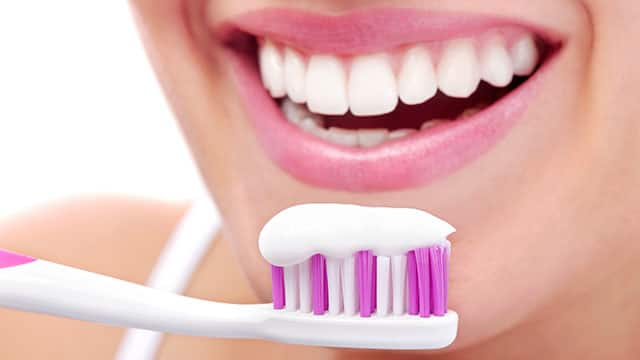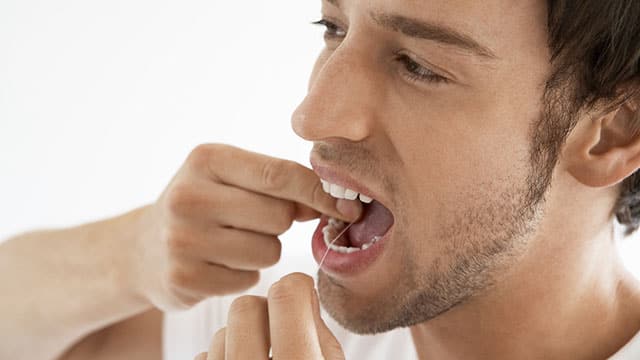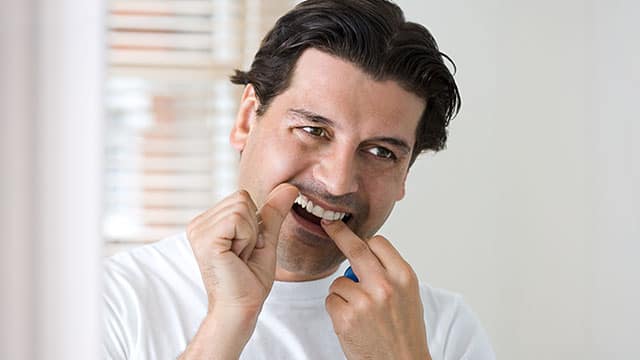Despite its strength, tooth enamel can lose its mineral content, making it weak and vulnerable to decay. What to do if you're experiencing this? Don't fret! There are plenty of toothpaste options that will help. Before we dive into the details of treatment, let's discuss why teeth lose mineral content, why it's essential to address mineral loss, and how to bring minerals back to your teeth.
Why Does Enamel Lose Mineral Content?
When your enamel loses calcium and other minerals, it's called demineralization. It's a natural process that occurs all day long.
Here's how it works: whenever you eat or drink something that contains sugar or starch, the bacteria in your mouth produce acids. These acids eat the enamel of your teeth. Simultaneously, the minerals in saliva, like calcium and phosphate, as well as fluoride (from toothpaste, water, etc.), repair the enamel and replace the lost minerals. This part of the process is called remineralization. This give-and-take process keeps your mouth very busy.
Sometimes the amount of mineral loss is so large that it can't be replaced naturally. This generally happens from consuming sugary foods or from poor oral health care. It can also be caused by calcium leaching. The body uses tooth enamel to compensate for a calcium deficiency elsewhere, typical of people who have osteoporosis.
How Does Demineralization Impact Your Teeth?
If demineralization is left untreated, it can impact your oral health. Since demineralization weakens tooth enamel, it increases your risk of cavities. In addition, it may leave your teeth discolored and sensitive.
Sometimes white spots appear, which are often the first sign of enamel erosion. If this is something, you've noticed with your teeth, getting them checked out and treated right away is important.
Can I Remineralize My Teeth Enamel?
Yes, you can! Reminizeraliztion is also a natural process, as we discussed above. It's important to mention that tooth enamel cannot be replaced once it has been destroyed, but it can be strengthened if it's weakened. That's what remineralization is all about.
There are many things you can do to prevent or arrest demineralization, especially at an early stage. Fluoride therapy, diet control, and taking probiotic bacteria are some great options. All of these things bring minerals back to your teeth and mimic or enhance the natural process.
What's The Best Remineralizing Toothpaste?
Brushing regularly with a remineralizing toothpaste is one of the best methods of strengthening tooth enamel. The best toothpaste for enamel contains calcium phosphate, stannous fluoride, or similar fluoride forms, which can help remineralize tooth enamel.
Every time you brush your teeth with fluoride toothpaste, your tooth enamel absorbs a small amount of fluoride, which replaces the minerals that have been lost. Over time, the existing enamel becomes stronger and more resistant to decay. Tooth enamel with fluoride is always stronger than untreated teeth. So keep that in mind. And remember, remineralizing toothpaste doesn't treat cavities. But it sure does help prevent them!
Suppose your tooth enamel has lost some minerals. In that case, there are several options to support you, especially if you treat it right away. Today we focused on fluoride toothpaste, which has the added benefit of preventing cavities. Plus, it's easy to buy and apply. Remember that a sugary diet or a lack of oral hygiene can weaken your tooth enamel. So take good care of your teeth! And if you have white spots, discolored or sensitive teeth, make sure to check in with your dentist about the potential for enamel erosion. The key is to remineralize right away to prevent further damage and decay. If you do that, you're on your way to ensure stronger and happier teeth.
This article is intended to promote understanding of and knowledge about general oral health topics. It is not intended to be a substitute for professional advice, diagnosis or treatment. Always seek the advice of your dentist or other qualified healthcare provider with any questions you may have regarding a medical condition or treatment.
ORAL HEALTH QUIZ
What's behind your smile?
Take our Oral Health assessment to get the most from your oral care routine
ORAL HEALTH QUIZ
What's behind your smile?
Take our Oral Health assessment to get the most from your oral care routine















